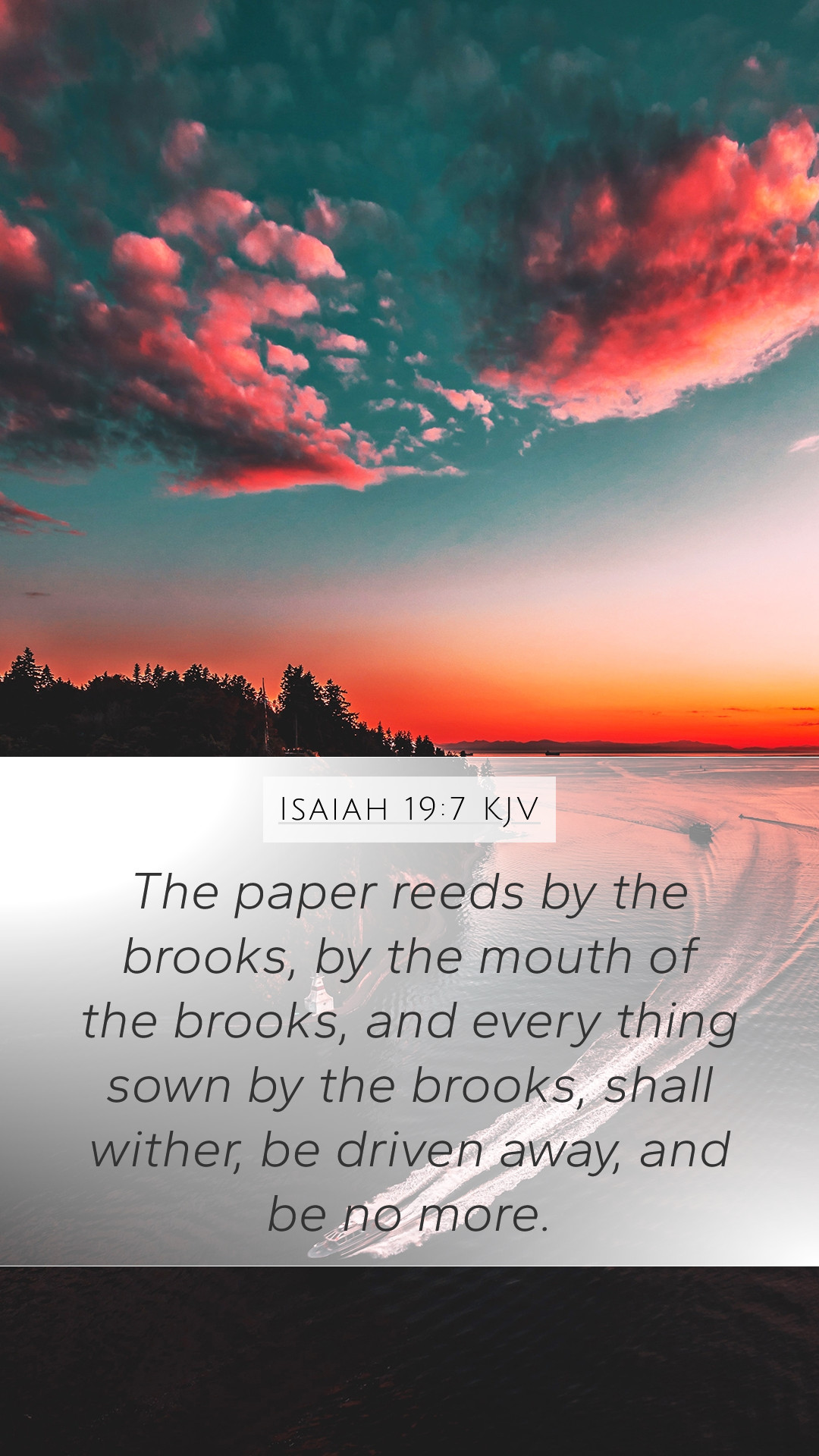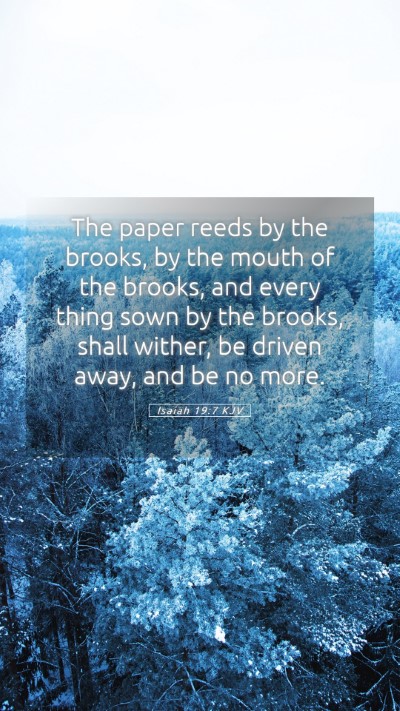Understanding Isaiah 19:7 - A Comprehensive Bible Verse Commentary
Isaiah 19:7 states, "The papyrus reeds by the Nile will all wither, the vegetation along the river’s edge will dry up and blow away." This verse carries a profound biblical significance and invites various interpretations reflecting upon the historical and spiritual context.
Overview of the Verse
This verse is part of a prophetic declaration regarding Egypt and its judgment. The imagery of withering papyrus and dried-up vegetation symbolizes the desolation that will befall the land due to God's displeasure. It serves as a warning about the consequences of turning away from divine guidance.
Insights from Public Domain Commentaries
Matthew Henry's Commentary
Henry draws attention to the desolation represented by the papyrus reeds, which were once a source of life and livelihood. He emphasizes that the natural decline of the land serves as a metaphor for the spiritual decline of the people. The drying up of the Nile’s banks illustrates God's judgment and the futility of relying on earthly resources in absence of divine favor.
Albert Barnes' Notes on the Bible
Barnes highlights the significance of the Nile in Egyptian life, calling it the "lifeblood" of the nation. The prediction of withering vegetation indicates that God can remove His blessings, leading to economic and spiritual ruin. He notes that this serves as a reminder of the importance of returning to faithfulness to God, as divine providence is essential for true sustenance.
Adam Clarke's Commentary
Clarke elaborates on the specific types of vegetation mentioned, explaining their significance in the daily life of Egyptians. He points out that the papyrus plant was integral not only for writing materials but also served as an economic staple. The prophecy underscores the comprehensive nature of God's judgment, affecting both the environment and society at large.
Thematic Analysis
The themes presented in Isaiah 19:7 can be explored through the lenses of:
- Divine Judgment: The verse portrays the consequences of national disobedience and unfaithfulness.
- Dependence on God: It illustrates the belief that true prosperity comes only from aligning with divine will.
- Environmental Symbolism: The withered vegetation acts as a stark visual representation of spiritual barrenness.
Application and Relevance
When contemplating the significance of Isaiah 19:7, one may reflect on several applications in today's context:
- **Personal Reflection:** Consider areas in life where spiritual neglect may lead to desolation.
- **Community Awareness:** Evaluate how collective choices impact natural resources and communal well-being.
- **Cultural Understanding:** Recognizing the historical significance of agricultural traditions can enhance one’s appreciation of biblical texts.
Cross References
This verse has related themes and teachings in the following cross references:
- Jeremiah 44:18-19: Discusses the destruction brought on by divine judgment on Egypt.
- Ezekiel 30:12: Speaks of the drying up of Egypt's rivers and the loss of its fertility.
- Isaiah 1:30: Describes the consequences of turning away from God as likened to a withered garden.
Conclusion
Isaiah 19:7 serves as a stark reminder of the connections between divine favor, national behavior, and environmental conditions. Understanding this scripture provides deep insights into biblical themes of judgment and reliance on divine providence. This analysis invites readers of all backgrounds, whether in bible study groups or online bible study, to reflect on their relationship with God and the implications of their spiritual state.


